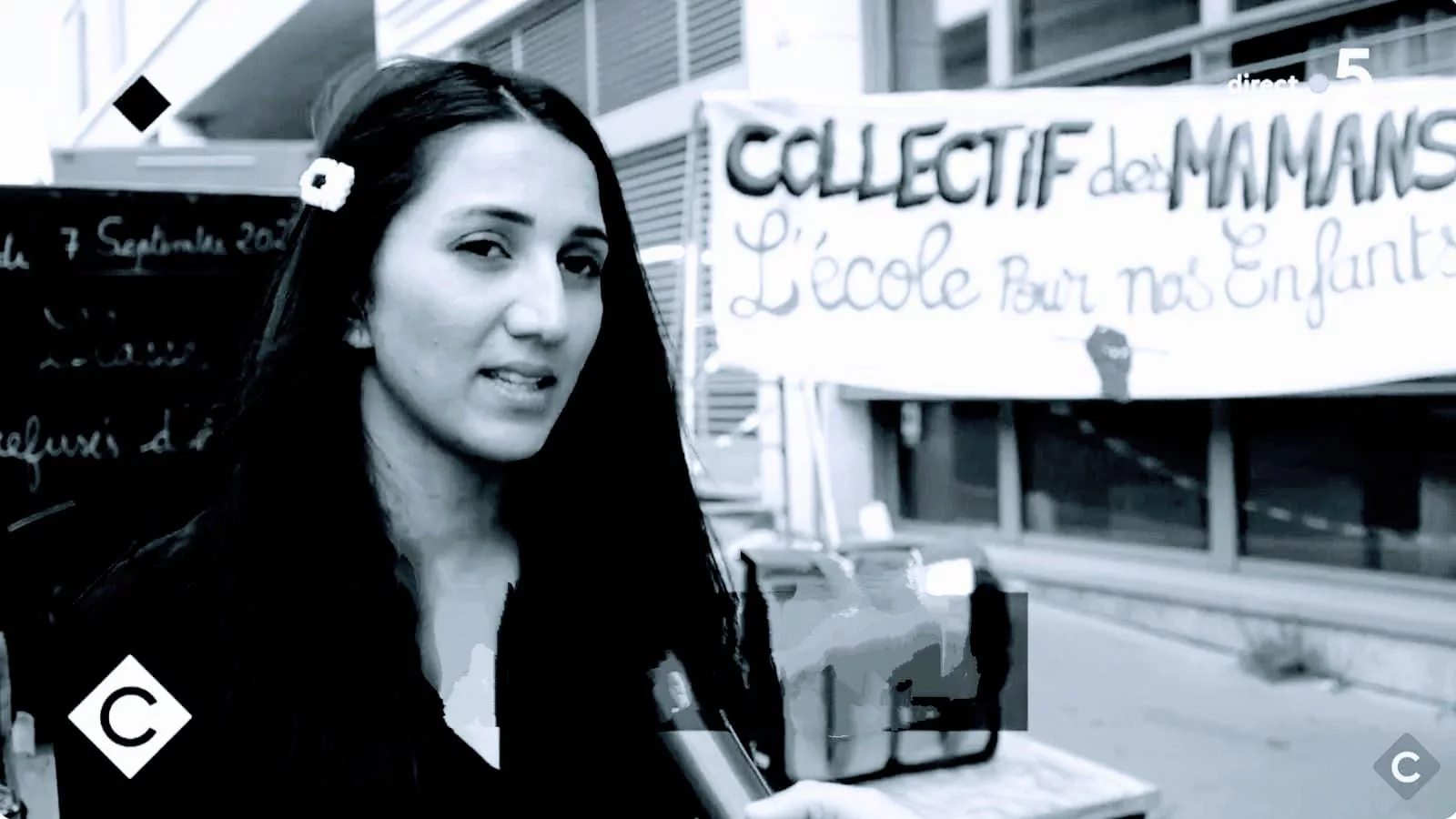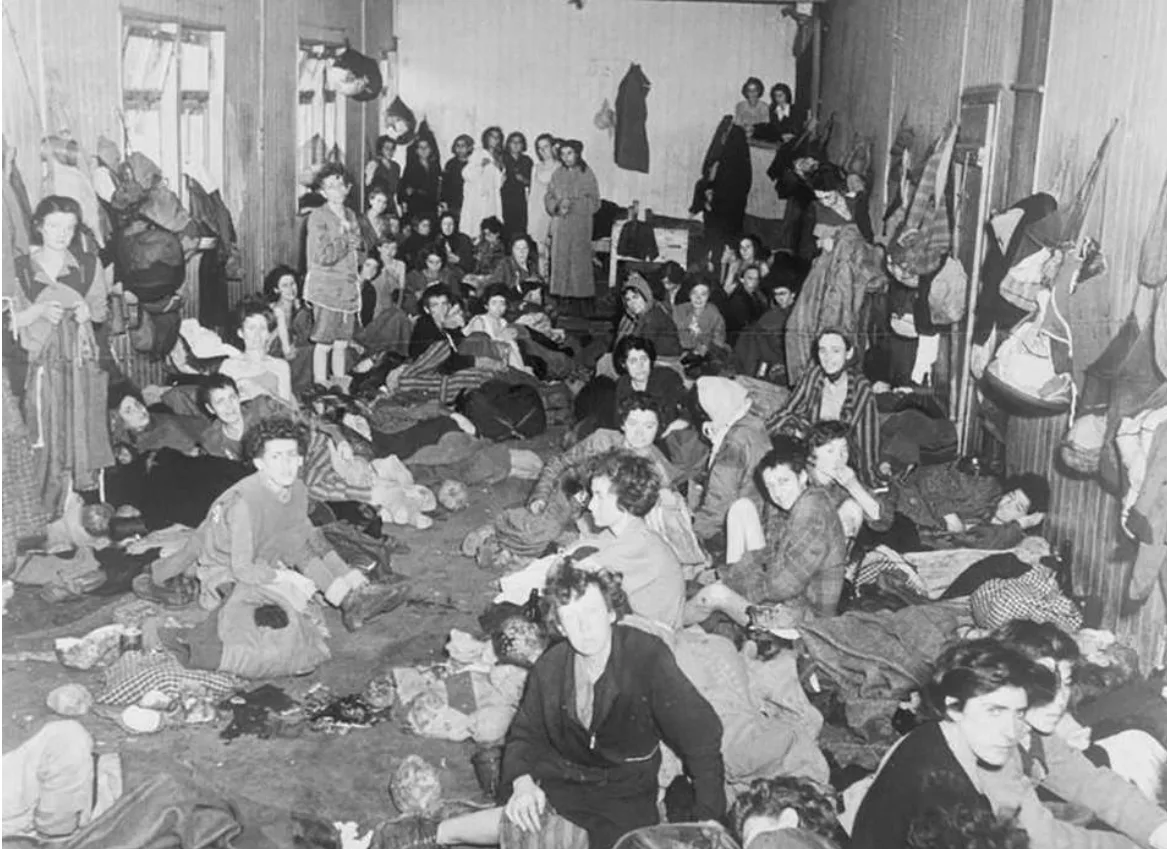Battle story
The battlefield is the hearts of the people
By Pierre Chopinaud
(Previously…)
Last time, one of these important figures, faced with the intransigence of the leaders of the mothers’ collective who were demanding the immediate enrollment of a child in school, left the room crying with helplessness: “How can you do this to us? How can you do this to Mr. Mayor who is such a good person?” The “it” in question was simply the power to enforce the right to school of a Roma child and to impose that his life has the same value as the lives of the children of the important woman who was crying. Fear had changed sides.
“the foundation: it is all this underground and invisible work that is the prerequisite for the development of a radical political organization.”
It was now the beginning of spring, six months ago Alisa, Mirela, Lucile and Emmanuelle had sown the first seeds of the adventure of the mothers’ collective and already the first flowers under the sun had opened, the first little joys, the first joys smiles came to the faces of the children and their mothers. But what had taken place during those six months had remained in the shadows. The twelve mothers who formed the collective had been transformed into women of action by the words of two of them, Alisa and Mirela, who had assumed the role of leaders, that is, the responsibility of enabling others to commit themselves to the pursuit of a common goal.
By the verb, they had in the hearts of these women replaced fear with courage. Each had become a soldier, a militant determined to fight because of the value she attaches to the lives of her children. With Alisa and Mirela, Lucile and Emmanuelle formed the driving team: the locomotive that drove each wagon of the collective into action, giving it its meaning: that is, both its strategic direction and its meaning (its motive and its justification). The leadership team had therefore conceived the battle plan, the path by which they were all going to pass together to reach their destination. like David, and the wicked Goliath, the rector of the Academy, they had even already achieved small victories, as if to sharpen their weapons, but all this was still kept secret: the film of which they were the heroines had not yet begun in the eyes of the general public.
During these six months, what the leadership team had successfully worked on is what is called in radical political organization the foundation: it is all this underground and invisible work that engages both the head (conceiving the strategy, the battle plan, recruiting it, recruiting it) encourage) as well as the hand (train, forge its weapons) which is the indispensable preliminary to the triggering of a strategic campaign during which a power organization will develop and grow. It is the time of pregnancy, if I may say so, of maturation in utero, without which on the big day only a powerless aborton, a straw fire, or a sword-stroke in the water would emerge.
Now it was time to enter the stage, into the light, to raise the curtain.
“Roxana sees the portrait of the mayor, she blushes at his audacity, and with a mixture of shame and pride, she asks her lawyer “is it really against him that we won? David had defeated Goliath.”
But before that allow me to return one last time to moment of emotional light that dazzled during these six months our foundation work because if I don’t do it now it will forever remain in the shadows. It is a simple moment: but the pure joy that is expressed is precisely the manifestation of the sense I spoke to you above, which indicates both the direction and the motive, but also and above all that gives, despite the context of uncertainty that characterizes all political action, confidence, close to certainty, that is, the faith, that victory is at last.
During the last phase of the foundation, the collective of mothers had launched a first tactic that consisted of a testing campaign whose purpose was to constitute the evidence that would serve during the first big public launch action that I will tell you soon. And one of the results of this first tactic was the rebirth of courage and pride, of dignity on the face of one of the militant mothers in particular: whose name is Roxana. Precisely when she entered a communist town hall in Seine-Saint-Denis with her lawyer, Master Anina Ciuciu. For nine months Roxana had been prevented from enrolling her five-year-old daughter in the city school by the administration. All the services had conspired to trap her, from the wicketkeeper to the elected in-charge of the school. She had tried everything. Nothing had worked: for nine months, she was desperate. She had not had the simple power to enroll her five-year-old daughter in school. She was humiliated. All the municipal bureaucracy had prevented her because she and her daughter lived in a slum that the mayor and his team had decided, by all means of their power, to make disappear. But that day, nine months later: Roxana entered the town hall as if she owned it, she was even angry that the employees opened the doors for her one after another with so much obsequiousness, until the door of the elected education officer who had humiliated her for a month. The instruction had been given by the mayor himself to receive Roxana with the utmost respect and hand over to her the paper she had come for: her daughter’s school enrollment. The judge had ordered it. The mayor had been sentenced to pay and in order to avoid the campaign of public shame that the collective of mothers made weigh on his head like a sword of Damocles he had decided to execute quickly what Roxana demanded. Indeed what bad publicity for an anti-racist far-left personality to be shown blatantly committing racial discrimination. When Roxana, in the office of the elected official, sees the frame hanging on the wall of a portrait of the town hall, she blushes at his audacity, and with a mixture of shame and pride, she asks her lawyer: “is it really against him that we won? David had defeated Goliath.
“This first scene had a lot of exposition: it was for the collective of mothers to expose the drama they were going to play for a year, its characters, the heroines, the villain, and give an idea of the desired outcome”
But let us now return to our curtain raising: the time of the foundation was over: the organization was deeply rooted in the hearts, minds and hands of the women who constituted it. It was so now that the show begins!
This first scene had a lot of exposition: it was for the collective of mothers to expose the drama they were going to play for a year, its characters, the heroines, the villain, and give an idea of the desired outcome. The drama was that Alisa, Mirela, Ana Maria, Roxana and the others faced a terrible injustice when enrolling like any mother their little girl or their little boy in school, they faced a discriminatory refusal because they lived in a city, and they were perceived as Roma women. The characters, the heroines, it was they: it was to them that during the big premiere the audience would be led to identify with emotion. The villain, the infamous culprit of this ignoble mistake, the wicked, the hateful, the powerful, would be the rector of the Academy, and in this story, in the background, he would have lieutenants, just as hateful: the mayors of the department. The desirable outcome would be that the heroines of history by courage and their commitment to action, scene after scene, pay the price of their fault so badly to the powerful, both financially and politically that it would be forced, to no longer have to pay, to put an end to discrimination: power, and depended only on his decision. But as in all good stories, you can never be certain of the outcome from the start.
Alisa and Mirela, the two mothers, then gathered several times all the members of the collective to imagine together this first scene: what would be this first big public action of launch? They already knew that they would stage and dramatize the complaint that some mothers were going to file collectively that day against the rector and the mayors of the department. The problem was that in the 21st century, to seize justice, it was enough for the lawyer to send a paper by e-mail. Nothing too thrilling. It was therefore necessary to make the act spectacular. They decided that they would address a letter to the rector asking for an appointment and this letter, they placed it in the middle of a large frame that they could show. They decided that the action would take place the day after the return of classes before the court: they would install a classroom for their children who were prevented by the criminals from going to school: what a striking contrast, while all over France watching television every year their return from classes, a group of mothers would say “all the children? No… not ours…”
Then they imagined slogans that they would hang on the small posters of their children who were going to class in front of the court, they prepared a large banner where the name of their group would be written: “collective of mothers, the school for our children” and gave the class a name: “Action refused from school”.
During this phase of the imagination of the staging, Emmanuelle and Lucile prepared the coffees and took notes, the other employees of the Askola team who were men, had offered to participate in the flourishing of this collective whose victories they were proud of their daily work as social mediators: they found their place as allies during this action by offering to take care of the children’s J-day while the members of the collective devised the follow-up of their plan.
“The art of radical political organizing is much like the work of a stage director: it involves dramatizing, writing dialogue, arranging actors, and finding those who will make the images”
Here, the staging was ready … But for the show to begin it still lacked the light, the lights of the ramp: it lacked the press, and if I may say, the dialogues. In order for the audience to be moved by the drama, and to empathize with the heroines who were to become the militant mothers, the cameras had to be turned. The art of the radical political organizer is also very similar to the work of a stage director: it is about dramatizing, writing dialogue, arranging actors, and finding those who will make the images while ensuring that the images tell the story of the drama. collectively with the heroines of the story who are interested, for their real lives, in the end of the story being the victory of David over Goliath, because people’s lives depend on it.
Earlier and already during the foundation, we had brought on board, after having rallied, Faiza Zerouala, of Mediapart. She would not only be present on the day of the action but she had already accompanied incognito, during the foundation, in the shadows, some of the mothers during their dueling fights at the town hall to witness discrimination firsthand. Then following an angle that we thought collective and that resumed the general drama of history: mothers want to make the powerful mayors and rectors pay the price of the dignity of their children -Lucile wrote and diffused (with the help of an ally, Fatima Hamilton) press, then cast it like the thread of a fishing rod into the pond. And journalists bit the cheek. It was every time, for Lucile, when one of them expressed an interest in making sure that he would be faithful to the angle that we had imagined, that he was sincerely sensitive and respectful of the struggle, and that in the end he would not tell us a story that he wished when telling.
Then it was asked for the mothers of the collective to designate their spokesperson, those who would be the main actresses. There were Mirela, Alisa and Alina as well as among the lawyers, Anina Ciuciu. It was then to conceive with each of them the text that they would say during the action. Then two weeks before J-day began rehearsals led by Lucile and Emmanuelle: each actress rehearsed as if it were the day of her first big role.
“The villain of the story was also to, on this occasion, make his grand entrance on stage. It was indeed to make him come out of the wood like a wolf. That was one of the goals of the operation. We had to push him into the light because every good story needs your voice.” Wolf “.
And the day after the return, they were in court. As there were people: they came, following my advice, with their husbands, children, brothers, sisters, friends, and mothers-in-law. It was the carnival, there were the children, with posters on which were hung the slogans, the banner where their mothers had written: “school for our children” In front of the cameras, Anina, Mirela, Alisa, Alina told their story, the story of their children, the injustice that was done to them and the one she held responsible: the great evil rector and his lieutenants: the mayors of the department. The villain of history was also to make his grand entrance on stage. It was really about making him come out of the wood like a wolf. That was one of the goals of the operation. We must push it into the light because every good story needs to see the face of a villain. That’s why in front of the cameras Mirela held out a framed letter addressed to her name publicly inviting him to grant them an appointment.
In the evening and the next day, France had heard of these brave women and was moved by their story. Faiza Zerouala published her report in mediapart There was a topic for an hour of great listening in the show C à vous, another report in Kombini, an article in 20 minutes and others more …
“At the end of the action, of the campaign, whether victorious or not, the hero enters the shadow because the light is no longer of any use to the cause, and that as an actor, he enters the real, after the end of the game.”
It should be noted that making oneself known, drawing light on oneself is never an end in itself in radical political organization, it is a means, a tactic or a strategy among others. It’s a game.
Moreover, strictly speaking, the word “media” means “medium”. A great many causes shipwreck, because their hero confuses the means with the end, and the cause with the means. In a good radical political organization, that is, an organization that builds power and through this power really changes the world, at the end of the action, the campaign, whether it is victorious or not, the hero goes into the shadows because the light is no longer useful, but as a cause actor, he enters the real, after the end of the game. Besides, there’s no better indication that a cause is lost than seeing its spokesperson no longer leave the ramp lights.
After the joy of having accomplished all together a feat, a great action, where each had played his part to the best, where each had given the best of himself, overcome his fear, for all others; after receiving many messages of support, encouragement and congratulations from all over France, the members of the collective, after a few days, a few weeks, had to realize that on at least one point they had failed: they had not seen the wolf out of the wood. The press had barely mentioned his name. The beginning of the film was missing a character, and not just any: the villain.
It is indirectly and without showing that he reacted a few weeks later to the great public launch action of the collective of mothers, skillfully, and not at all in the way we expect.
(More in the next episode….)


